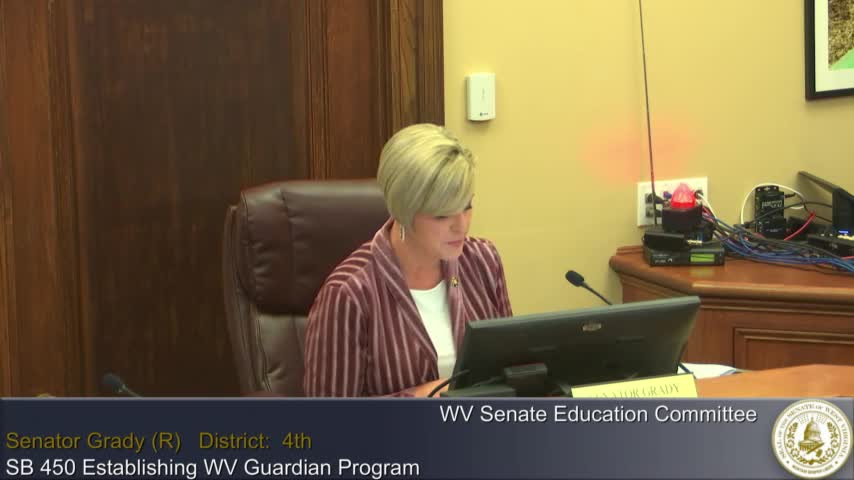Committee adopts substitute requiring wearable panic-alert devices in public schools, clarifies scope
Get AI-powered insights, summaries, and transcripts
Subscribe
Summary
A Senate committee approved a committee substitute (as amended) for Senate Bill 4 34 requiring the State Board and Division of Homeland Security and Emergency Management to adopt rules for a wearable panic-alert system in public schools, and directed county boards to provide devices and training. The committee clarified the requirement applies to
A Senate committee on (date not specified) adopted a committee substitute, as amended, for Senate Bill 4 34 that would require the State Board, in conjunction with the Division of Homeland Security and Emergency Management, to promulgate rules implementing a wearable panic-alert system in public schools. The committee then voted to report the substitute, as amended, to the full Senate with a recommendation that it pass and to first refer the bill to the Committee on Finance.
Counsel Hank explained the substitute would require each school to have a wearable panic-alert system capable of integrating with local public-safety answering point infrastructure to transmit 911 calls and mobile activations and to initiate campus-wide lockdown notification. "Each county board is required to provide each employee assigned to a school facility with a wearable panic alert device that allows for immediate contact with local, emergency response agencies," Hank said. The substitute also requires annual training before the first day of school and mandates county boards ensure local law enforcement can access security data such as cameras, maps and access-control information.
Senators pressed counsel on several points during discussion. The Senator from Randolph asked who would pay for devices and training; counsel said the bill does not specify funding and a fiscal note had not yet been provided, so absent state appropriation counties would likely bear costs. The Senator from Greenbrier asked whether alerts would go to 911 centers and department protective services; counsel said the substitute requires transmission to 911 call centers and may be capable of integrating with other systems.
The Senator from Raleigh raised concern that the substitute’s language reading "every school" could be read to include private schools. She offered an amendment to clarify the requirement applies to public schools (including charter schools) while allowing private schools to participate voluntarily if they fund the devices and training. The committee adopted that amendment by voice vote; counsel confirmed the amendment would make the requirement mandatory for public schools and permissive for private schools. The committee then agreed to the committee substitute as amended and voted to report it to the full Senate with the recommendation that it pass, subject to referral to the Committee on Finance for fiscal review.
The substitute’s fiscal implications were not specified in the committee record on the transcript; the substitute’s rulemaking requirement and equipment mandate mean counties and the State Board will likely need to resolve funding and operational details during subsequent consideration.
